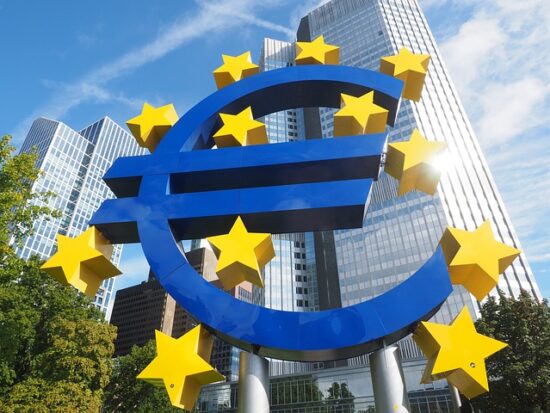The chances of the Eurozone falling into a deep economic recession this winter are shrinking.
Big fiscal supports from governments, lower gas prices and a mild autumn have helped improve the bloc’s economic outlook, according to economists.
Most forecasts continue to show that output in the Eurozone will be reduced in the coming quarters.
The European Commission said earlier this month that it expects the economy to shrink by 0.5 percent in the fourth quarter and by 0.1 percent in the first three months of next year.
Economists forecast economic growth for the 19-member bloc of 3.2 percent for the whole of 2022, compared with the previous July forecast of 2.7 percent.
The disruption of supplies via the main Nord Stream I gas pipeline from Moscow over the summer added to fears that the region would find it difficult to replace Russian energy sources and this sent gas prices soaring.
But October, which had the mildest temperatures ever recorded for the period, has caused households and factories to use less energy, allowing gas storage facilities to be near full capacity.
Holger Schmieding, chief economist at Berenberg Bank, forecast a drop of 2.1 percent for the three quarters to mid-2023, based on gas prices of 220 euros per MWh this winter and fears of power outages.
On the other hand, economists are becoming increasingly pessimistic about the outlook for next winter and now believe that Eurozone output will be reduced by 0.1 percent in 2023 – a significant drop from the 2.3 percent economic growth expected in March, right after Russia invaded Ukraine.





